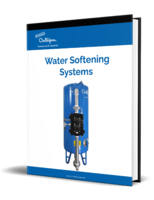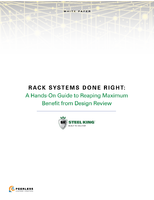IPC Guide details conflict minerals due diligence obligations.
Share:
Press Release Summary:
By providing guidance on tracking, management, disclosure, and reporting of conflict minerals, IPC Conflict Minerals Due Diligence Guide will help companies develop effective conflict minerals program to meet customer, legal, and regulatory requirements of Section 1502 of Dodd-Frank Wall Street Reform and Consumer Protection Act and regulation published by U.S. SEC. Guide walks companies through appropriate level of due diligence given their size or number of supply chain relationships.
Original Press Release:
New IPC Guide Spells Out Electronics Manufacturers' Conflict Minerals Due Diligence Obligations
BANNOCKBURN, Ill., USA — To help companies develop an effective conflict minerals program to meet customer, legal and regulatory requirements established by Section 1502 of the Dodd-Frank Wall Street Reform and Consumer Protection Act as well as the regulation published by the U.S. Securities and Exchange Commission (SEC), IPC has released IPC Conflict Minerals Due Diligence Guide. This document provides valuable guidance on the tracking, management, disclosure and reporting of conflict minerals.
Expected to have a similar impact on the electronics manufacturing industry as the EU RoHS Directive, conflict minerals regulations will affect the entire electronics supply chain, regardless of whether or not a company is directly regulated by the SEC. Recognizing the complexities and business challenges that are associated with the global electronics industry and its vast network of global suppliers, IPC’s guide walks companies through the appropriate level of due diligence given their size or number of supply chain relationships.
“This document will help companies navigate their downstream supply chain due diligence responsibilities," says John Ciba, Brady Corporation and co-chair of the IPC Conflict Minerals Due Diligence Committee. "There is a real need in the downstream supply chain for step-by-step guidance on what to do when it comes to addressing conflict minerals regulations and that’s exactly what this guide provides,” Ciba adds.
IPC Conflict Minerals Due Diligence Guide includes details on what a company should include in its conflict minerals program. The document covers everything from who to include on a company’s conflict minerals team to what to include in a company policy statement. The guide also lays out steps for identifying and prioritizing suppliers. Due to the complexity of the electronics supply chain it is imperative to identify key suppliers in order to ensure they are thoroughly vetted for conflict minerals information. Since Section 1502 and the SEC regulations require companies to show their due diligence, this guide includes information on ensuring due diligence measures are met.
“This document is beneficial to industry,” says Joel Sherman, KEMET Electronics and fellow co-chair of the IPC Conflict Minerals Due Diligence Committee. “Although the guide was developed by and for the electronics industry supply chain, companies in many industries may find the guide useful.”
IPC Conflict Minerals Due Diligence Guide is available in print as well as electronically. For more information or to purchase the guide, visit www.ipc.org/conflict-minerals-guide. This document will also be available for purchase at the IPC Bookstore Booth #2047 next week at IPC APEX EXPO® in San Diego.
For information on all of IPC’s advocacy and other activities regarding conflict minerals, visit www.ipc.org/conflict-minerals  .
About IPC
IPC ( www.IPC.org ) is a global industry association based in Bannockburn, Ill., dedicated to the competitive excellence and financial success of its 3,300 member companies which represent all facets of the electronics industry, including design, printed board manufacturing, electronics assembly and test. As a member-driven organization and leading source for industry standards, training, market research and public policy advocacy, IPC supports programs to meet the needs of an estimated $2.17 trillion global electronics industry. IPC maintains additional offices in Taos, N.M.; Arlington, Va.; Stockholm, Sweden; Moscow, Russia; Bangalore, India; Bangkok, Thailand; and Shanghai, Shenzhen, Suzhou, Chengdu and Beijing, China.




